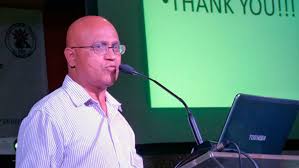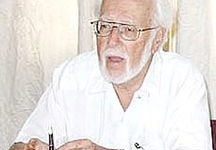What are the policies PPP/C will implement to address fears, expectations and needs of all ethnic communities?
BY: GEOFFREY DA SILVA
I am replying to a letter entitled `Pulse of the nation has deserted PNCR’ in the July 20, 2020 edition of SN by Harry N Nawbatt which was in reply to mine of July 18, 2020.
Thank you very much Harry for your comments which has given me an opportunity to further explore the most serious, persisting, confusing and difficult problem in Guyana – the conundrum of inter-ethnic rivalry between the African and Indian communities. Most Guyanese, including myself, have either denied, ignored or downplayed the conundrum.
Now, we are facing a slow-moving “dressed up” coup with de facto power that is unlawful and illegitimate. We must now be motivated more than ever to find solutions.
A very small multi-ethnic group of unscrupulous middle class politicians, professionals and business people want to overturn the results of the free, fair and transparent recount of votes from the 2020 election.
To deflect from the real reasons for their electoral loss, this APNU/AFC elite are fooling their working class and poor members and supporters, from mainly one major ethnic community, into rejecting democracy. They covertly blame another major ethnic community for all the social and economic problems in the country. They are fostering a fear among their supporters that they will be excluded or marginalized from the promising oil revenues.
In this context, Harry, I am hoping that you are right when you stated in your letter that “many many supporters have deserted them” and “except for a few who do not number more than the fingers on two hands, they have no following in the Diaspora”; and the PNC “would find it extremely difficult to win even 25 seats in the 2025 elections”. Is this armchair wishful thinking and a pleasant imagination? Did you come to these conclusions by going on the ground to gauge the pulse of the African Guyanese communities in Guyana and overseas?
Here is the tough reality today. In the 2020 election, at least 95% of African voters supported the APNU/AFC and at least 95% of Indian voters supported the PPP/C. You did acknowledge that “hopefully the not too distant future (will) bring an end to the ethnic voting often referred to” and you noted that you have “seen persons outside of the traditional ethnic enclaves who have moved over in supporting the PPP/C in the last elections”. You ended by stating that overcoming the ethnic enclaves will be “surely helped by the policies implemented by the future government of the PPP/C”.
Which policies? A public discussion of these policies is the business of every member and supporter of the PPP/C and every other Guyanese. We have to be confident that the policies you refer to will address the concerns, fears, expectations and needs of all ethnic communities, including the over two hundred thousand persons who voted for the APNU/AFC in 2020.
What we need now are details and clarity. It is not sufficient for one Party leader to talk about joint government and the other Party leader to talk about inclusiveness, but both of these leaders have never demonstrated in action what they mean by joint governance and inclusiveness.
Why do we need this? We are facing the possible consolidation of a dictatorship. How will we stop it and defeat it? Non-violent actions will have to be taken to unite the general population. In particular, we will have to encourage APNU/AFC supporters to reject outright the dictatorship, and/or support APNU/AFC workers, professionals and business people to take a neutral position because they will be among the real losers under the sanctions, not the small multi-ethnic elite of riggers.
Most importantly, the democratic forces will have to win the hearts of our soldiers and police officers who want to serve all Guyanese and who do not want to be ordered to use force, to repress innocent people in any ethnic community.
Along with the political parties, civil society organizations must become equal actors on the Guyana “stage”. Elected trade unions, farmers’ organizations, business organizations, religious institutions, legal and medical associations, the University of Guyana and local think-tanks must all be involved in the movement against the dictatorship.
Therefore, Harry, building an anti-dictatorial movement will not be built by well-intentioned comments. The PPP/C will have to offer the better deal for a new political system that will implement inclusive governance and bring an end to unfair ethnic and class competition within and across all ethnic communities.
All of the democratic forces, within the African, Indian, Amerindian, Mixed, Portuguese, Chinese and European communities, have to work together to prevent the dictatorship from dividing the nation, from co-opting many opportunists, and from installing provocateurs to foster chaotic and undisciplined behaviour.
Immediately after the PPP/C is sworn in, there will be intense interest and encouragement from CARICOM, the OAS, the EU, and the Commonwealth for new governance measures to move Guyana forward. As the former Chairwoman of CARICOM Ms. Mia Mottley stated that, after the declaration by GECOM that the PPP/C won the election, “there must be room for all regardless of who wins and who loses”. We will have to welcome this as brotherly and sisterly love, and not protest that it is interference.
The main initiatives have to come, first of all, from us, ordinary Guyanese people within Guyana and in the Diaspora. We must change our mindset and reject a destiny for “our dear land of Guyana” of political stalemates, unfair competition, persistent poverty and the continuous bouts of political insanity.
Then, we have to push and pull all of our female, young and male leaders to sincerely and concretely work for national unity and equal economic opportunities for all ethnic communities.






















